CORPORATE ACTION
Greenpeace analysis shows path for supermarkets to halve plastic use by 2025
Greenpeace uses detailed analysis of plastic use along with an assessment of abatement strategies to identify plausible reductions in plastic use at UK supermarkets. Challenges supermarkets to do more to reduce single-use plastic
A comprehensive analysis by Greenpeace builds a detailed picture of plastic use based on sales in a UK supermarket. The analysis leverages one full year of sales data by a leading UK retailer as well as workshops with UK supermarkets and FMCG companies during 2019.
Greenpeace then reviewed abatement strategies for each of 54 categories, assessing the potential to reduce plastic use. It found that the biggest reductions can happen in 13 product categories where there is potential to reduce plastic by 70–90%. The eight categories shown below account for 69% of the total potential.
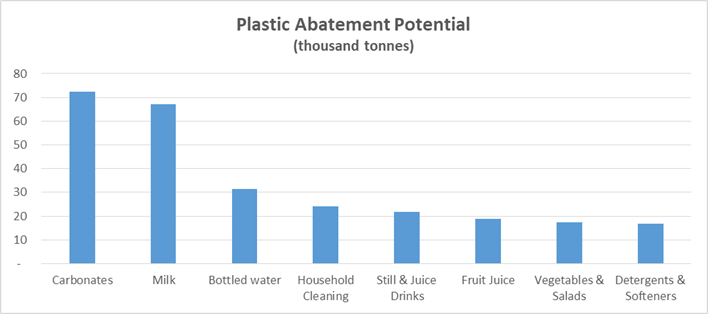
The two top categories – Carbonates and Milk – together account for 36% of the total reduction potential.
Greenpeace’s analysis comes as plastic use in UK supermarkets continues to rise. According to the latest available data, supermarkets accounted for a total of 900,000 tonnes in 2018, up from 880,000 tonnes in 2017.
Greenpeace says supermarkets can achieve a minimum 50% reduction in single-use plastic packaging, purely via reduction and reuse.
Eliminate
A considerable amount of plastic can be abated simply by eliminating it. Many fruit and vegetables, for example, come wrapped in plastic although it serves little purpose. Allowing consumers to select their own produce and put it into their own reusable bags can bring large savings.
Reuse systems
Greenpeace also points to the potential of reuse systems, saying a shift to reusable packaging systems can delivery 25% of total savings. Refill systems include instore provision of bulk supplies where consumers can fill their own containers (dry goods, some liquids…). The campaign organization also highlighted commercial refill systems we have covered previously and reviewed, including Loop, Splosh, Algramo and smol.
Analysis by Ellen MacArthur Foundation underlines the potential of reuse, saying that if a bottle is reused 20 times it yields 95% less packaging waste.
Reuse is set to rise. In addition to consumer pressure, retailers and suppliers will soon face legal requirements. For example, in Romania businesses must reach a minimum 25% in their reusable packaging across all formats by 2025. France is aiming for 10% of packaging to be reusable by 2027, while Germany set an ambitious target for 80% of beverage packaging to be reusable. More broadly, the European Commission has committed to reviewing their Packaging Directive to reinforce mandatory requirements, including driving design for reuse and potential restrictions on some packaging where there are no reusable alternatives.
Halve it by 2025
Greenpeace is calling on retailers and the Government to set firm targets to at least halve usage of single-use plastics in supermarkets by 2025
Greenpeace points to growing consumer frustration about plastics. A 2018 poll conducted by Populus found that 91% of the UK public support the idea of having an entire aisle dedicated to the sale of products free of plastic packaging.[Image Credit: © Business360 (Greenpeace data)]
A comprehensive analysis by Greenpeace builds a detailed picture of plastic use based on sales in a UK supermarket. The analysis leverages one full year of sales data by a leading UK retailer as well as workshops with UK supermarkets and FMCG companies during 2019.
Greenpeace then reviewed abatement strategies for each of 54 categories, assessing the potential to reduce plastic use. It found that the biggest reductions can happen in 13 product categories where there is potential to reduce plastic by 70–90%. The eight categories shown below account for 69% of the total potential.

The two top categories – Carbonates and Milk – together account for 36% of the total reduction potential.
Greenpeace’s analysis comes as plastic use in UK supermarkets continues to rise. According to the latest available data, supermarkets accounted for a total of 900,000 tonnes in 2018, up from 880,000 tonnes in 2017.
Greenpeace says supermarkets can achieve a minimum 50% reduction in single-use plastic packaging, purely via reduction and reuse.
Eliminate
A considerable amount of plastic can be abated simply by eliminating it. Many fruit and vegetables, for example, come wrapped in plastic although it serves little purpose. Allowing consumers to select their own produce and put it into their own reusable bags can bring large savings.
Reuse systems
Greenpeace also points to the potential of reuse systems, saying a shift to reusable packaging systems can delivery 25% of total savings. Refill systems include instore provision of bulk supplies where consumers can fill their own containers (dry goods, some liquids…). The campaign organization also highlighted commercial refill systems we have covered previously and reviewed, including Loop, Splosh, Algramo and smol.
Analysis by Ellen MacArthur Foundation underlines the potential of reuse, saying that if a bottle is reused 20 times it yields 95% less packaging waste.
Reuse is set to rise. In addition to consumer pressure, retailers and suppliers will soon face legal requirements. For example, in Romania businesses must reach a minimum 25% in their reusable packaging across all formats by 2025. France is aiming for 10% of packaging to be reusable by 2027, while Germany set an ambitious target for 80% of beverage packaging to be reusable. More broadly, the European Commission has committed to reviewing their Packaging Directive to reinforce mandatory requirements, including driving design for reuse and potential restrictions on some packaging where there are no reusable alternatives.
Halve it by 2025
Greenpeace is calling on retailers and the Government to set firm targets to at least halve usage of single-use plastics in supermarkets by 2025
Greenpeace points to growing consumer frustration about plastics. A 2018 poll conducted by Populus found that 91% of the UK public support the idea of having an entire aisle dedicated to the sale of products free of plastic packaging.[Image Credit: © Business360 (Greenpeace data)]
CORPORATE ACTION: Beiersdorf
NIVEA Aims For Circular Economy With Refill Stations For Shower Gels
CORPORATE ACTION: Coca-Cola
Coca-Cola European Partners Moves to rPET Bottles In Two More European Markets
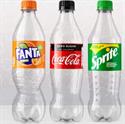 The announcement that CCEP will transition to 100 percent recycled plastic (rPET) bottles in the Netherlands and Norway follows the company’s decision to switch to 100 percent rPET bottles in Sweden. The move is an important step toward a closed-loop recycling system that will be supported by local deposit return schemes in those countries. Beginning in October, Coca-Cola in the Netherlands will produce 100 percent rPET small bottles for brands including Coca-Cola, Sprite and Fanta. Larger bottles will follow in 2021, making it the second market to move its locally-produced portfolio to 100 percent rPET. Coca-Cola Norway will transition to 100 percent rPET during the first half of next year.[Image Credit: © Coca-Cola European Partners]
The announcement that CCEP will transition to 100 percent recycled plastic (rPET) bottles in the Netherlands and Norway follows the company’s decision to switch to 100 percent rPET bottles in Sweden. The move is an important step toward a closed-loop recycling system that will be supported by local deposit return schemes in those countries. Beginning in October, Coca-Cola in the Netherlands will produce 100 percent rPET small bottles for brands including Coca-Cola, Sprite and Fanta. Larger bottles will follow in 2021, making it the second market to move its locally-produced portfolio to 100 percent rPET. Coca-Cola Norway will transition to 100 percent rPET during the first half of next year.[Image Credit: © Coca-Cola European Partners]
CORPORATE ACTION: Henkel
Henkel’s latest CSR Report Outlines Efforts To Fight Plastic Waste
 Henkel’s 2019 global sustainability report includes highlights of its efforts to combat plastic waste. It is a founding member of the new Alliance to End Plastic Waste (AEPW), set up to meet the circular economy challenge and stop waste entering the oceans. It is also a member of the New Plastics Economy initiative led by the Ellen MacArthur Foundation, and signed the NPE Global Commitment, along with over 400 other organizations. Henkel is a founding member of the CEFLEX consortium of 130-plus European entities focused on flexible packaging. In 2019, Henkel extended its partnership with the social enterprise, Plastic Bank, which has opened plastic waste collection points in Haiti. The waste is recycled as Social Plastic® to be used in products and packaging. The new agreement extends the collaboration for another five years, with plans to support projects in the Philippines and Indonesia, as well as Egypt. In 2020, Henkel will use over 600 tonnes of Social Plastic® in its packaging. The company has also created a global employee initiative, Trashfighter, to reduce plastic waste in the environment, last year asking 1,300 employees around the world to participate in collecting waste from riverbanks and cities.[Image Credit: © Henkel]
Henkel’s 2019 global sustainability report includes highlights of its efforts to combat plastic waste. It is a founding member of the new Alliance to End Plastic Waste (AEPW), set up to meet the circular economy challenge and stop waste entering the oceans. It is also a member of the New Plastics Economy initiative led by the Ellen MacArthur Foundation, and signed the NPE Global Commitment, along with over 400 other organizations. Henkel is a founding member of the CEFLEX consortium of 130-plus European entities focused on flexible packaging. In 2019, Henkel extended its partnership with the social enterprise, Plastic Bank, which has opened plastic waste collection points in Haiti. The waste is recycled as Social Plastic® to be used in products and packaging. The new agreement extends the collaboration for another five years, with plans to support projects in the Philippines and Indonesia, as well as Egypt. In 2020, Henkel will use over 600 tonnes of Social Plastic® in its packaging. The company has also created a global employee initiative, Trashfighter, to reduce plastic waste in the environment, last year asking 1,300 employees around the world to participate in collecting waste from riverbanks and cities.[Image Credit: © Henkel]
CORPORATE ACTION: Johnson & Johnson
Johnson & Johnson Consumer Health Launches Sustainability and Recycling Program
CORPORATE ACTION: Kao
Kao To Launch Raku-raku Switch Dispensing System For Its Eco Pack Refill Packaging
 Kao Corporation announced plans to launch its recently developed Raku-raku Switch, a dispenser system for liquid products using the company’s film-type Raku-raku Eco Pack Refill packaging. Designed to dispense a fixed amount of liquid, the Raku-raku Switch will be launched on September 19, 2020, for the brand’s Bioré u The Body - Body Lotion for Wet Skin. Kao says it developed the product as part of its Innovation in Reduction plastic waste reduction program, adding that the switch is designed to be attached to the opening of the Raku-raku Eco Pack Refill.[Image Credit: © Kao Corporation]
Kao Corporation announced plans to launch its recently developed Raku-raku Switch, a dispenser system for liquid products using the company’s film-type Raku-raku Eco Pack Refill packaging. Designed to dispense a fixed amount of liquid, the Raku-raku Switch will be launched on September 19, 2020, for the brand’s Bioré u The Body - Body Lotion for Wet Skin. Kao says it developed the product as part of its Innovation in Reduction plastic waste reduction program, adding that the switch is designed to be attached to the opening of the Raku-raku Eco Pack Refill.[Image Credit: © Kao Corporation]
CORPORATE ACTION: Kraft Heinz
Kraft Heinz Emphasizes Sustainability Progress; Third Party Observers Sceptical
 According to its second Environmental Social Governance (ESG) report, Kraft Heinz claims to be making good progress on its various sustainability goals, saying that “ESG is integrated into every part of the business” and that its ESG strategy reflects a core company value that “We do the right thing”.
According to its second Environmental Social Governance (ESG) report, Kraft Heinz claims to be making good progress on its various sustainability goals, saying that “ESG is integrated into every part of the business” and that its ESG strategy reflects a core company value that “We do the right thing”.In 2018, Kraft Heinz announced “a commitment to aim” to make 100 percent of its packaging globally recyclable, reusable or compostable by 2025. For 2019 it estimated this at over70 percent.
The majority of its packaging is paper-based, glass or metal materials that are recyclable, with the balance flexible plastic films or rigid plastic containers. Kraft Heinz adds that it is “aggressively pursuing technical alternatives while also collaborating externally to advance this commitment”.
It is making progress in making the recyclable Heinz Tomato Ketchup plastic bottle fully circular, so that it can be made back into food-grade packaging. Kraft Heinz Europe is on track to deliver its first circular Tomato Ketchup PET bottle to the market in 2021 instead of 2022. Initial estimates for 2021 on this initiative, which will span Europe, show it will impact approximately 300 million bottles at an average weight of 28 grams per bottle.
However, in its June 2020 report, “Waste and Opportunity 2020: Searching for Corporate Leadership”, the shareholder advocacy group As You Sow ranked Kraft Heinz poorly.
It gave Kraft Heinz a D- ranking, the lowest grade for any large CPG company. It pointed specifically to these failings:
“No goal for cuts in overall plastic packaging use or in use of virgin plastic packaging. No goals on reusable packaging. No goals on recycled content. No plastic use data disclosure. No support for producer responsibility[Image Credit: © Kraft Heinz]
CORPORATE ACTION: L’Oréal
L’Oréal Collaborates With TerrayCycle To Put Recycling Drop-Off Centers In 1,000 UK Stores
 Cosmetics company L’Oréal’s Maybelline brand has partnered with recycling firm TerraCycle to launch the “Make-up Not Make Waste” program, which will install recycling bins in branches of retailers Boots, Sainsbury’s, Tesco, and Superdrug. Expected to include 1,000 stores across the UK, L’Oreal’s initiative will allow consumers to deposit empty make-up products for recycling. Products accepted for recycling include compacts, tubes of foundation or concealer, mascara, eyeshadow palettes, and eyeliners, but not make-up brushes, nail polish, and aerosols. The items will be “collected from the shops, sorted, cleaned, and recycled into plastic pellets”. Environmental group Greenpeace is dissatisfied, urging L’Oréal and other manufacturers to reduce their overall use of plastic. Around the world, more than 120 billion units of packaging are generated by the cosmetics industry alone, with L’Oréal admitting it used 137,000 tonnes of plastic for its global operations in 2019. [Image Credit: © L'Oréal]
Cosmetics company L’Oréal’s Maybelline brand has partnered with recycling firm TerraCycle to launch the “Make-up Not Make Waste” program, which will install recycling bins in branches of retailers Boots, Sainsbury’s, Tesco, and Superdrug. Expected to include 1,000 stores across the UK, L’Oreal’s initiative will allow consumers to deposit empty make-up products for recycling. Products accepted for recycling include compacts, tubes of foundation or concealer, mascara, eyeshadow palettes, and eyeliners, but not make-up brushes, nail polish, and aerosols. The items will be “collected from the shops, sorted, cleaned, and recycled into plastic pellets”. Environmental group Greenpeace is dissatisfied, urging L’Oréal and other manufacturers to reduce their overall use of plastic. Around the world, more than 120 billion units of packaging are generated by the cosmetics industry alone, with L’Oréal admitting it used 137,000 tonnes of plastic for its global operations in 2019. [Image Credit: © L'Oréal]
CORPORATE ACTION: McDonald’s
McDonald’s Joins Forces With Loop To Test Reusable Cups For Hot Drinks
 McDonald’s Corp. has partnered with Loop, the circular packaging service of recycling company TerraCycle, to evaluate a reusable cup for hot beverages for the fastfood chain’s global operations in 2021. The test is expected to be conducted in some McDonald’s UK stores and enable customers to buy hot drinks in durable and reusable cups made by Loop. Customers will pay a small deposit when purchasing hot beverages in the reusable cup and can redeem the deposit by returning the cup to participating restaurants. Loop will wash and sanitize the cup for McDonald’s to reuse it.[Image Credit: © McDonald's Corporation]
McDonald’s Corp. has partnered with Loop, the circular packaging service of recycling company TerraCycle, to evaluate a reusable cup for hot beverages for the fastfood chain’s global operations in 2021. The test is expected to be conducted in some McDonald’s UK stores and enable customers to buy hot drinks in durable and reusable cups made by Loop. Customers will pay a small deposit when purchasing hot beverages in the reusable cup and can redeem the deposit by returning the cup to participating restaurants. Loop will wash and sanitize the cup for McDonald’s to reuse it.[Image Credit: © McDonald's Corporation]
CORPORATE ACTION: Nestlé
Nestlé France Launches Maggi Organic Bouillon Cubes With Recyclable Paper Packaging
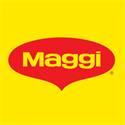 Nestlé launched Maggi organic bouillon cubes in recyclable paper packaging in France. Part of the company’s efforts to expand the use of paper packaging across product lines, the coated paper can be recycled using Nestlé’s paper stream in the country. In contrast, the previous packaging was a multi-layer laminate with aluminum added. The paper is supplied by pulp and paper mills recognized as sustainable by the Forest Stewardship Council and The Program for the Endorsement of Forest Certification.[Image Credit: © Nestlé]
Nestlé launched Maggi organic bouillon cubes in recyclable paper packaging in France. Part of the company’s efforts to expand the use of paper packaging across product lines, the coated paper can be recycled using Nestlé’s paper stream in the country. In contrast, the previous packaging was a multi-layer laminate with aluminum added. The paper is supplied by pulp and paper mills recognized as sustainable by the Forest Stewardship Council and The Program for the Endorsement of Forest Certification.[Image Credit: © Nestlé]
Nestlé Strengthens Drive For Recyclable And Reusable Packaging, Promotes Public Sustainability Awareness
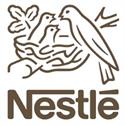 Nestlé is expanding efforts to ensure that its packaging will be 100% recyclable or reusable and reduce its use of virgin plastics by a third by 2025. 66% of its plastic packaging by weight (and 87% of total packaging) can currently be recycled or reused. Its recent sustainability actions include a $30 million investment to increase food-grade recycled plastics in the US, reusable pet food containers in Chile, and recyclable paper packaging for Maggi bouillon cubes in France.
Nestlé is expanding efforts to ensure that its packaging will be 100% recyclable or reusable and reduce its use of virgin plastics by a third by 2025. 66% of its plastic packaging by weight (and 87% of total packaging) can currently be recycled or reused. Its recent sustainability actions include a $30 million investment to increase food-grade recycled plastics in the US, reusable pet food containers in Chile, and recyclable paper packaging for Maggi bouillon cubes in France.Nestlé’s three-pillar sustainability initiative, launched last year will help it address plastic pollution: develop new packaging that is recyclable or reusable, including paper packaging and a single-material pouch for Gerber and Piltti baby food brands; ensuring a waste-free future, by actions such as Nestlé Philippines achieving plastic neutrality in August 2020 and creating a sustainable waste management system in Indonesia; and creating promoting new behavior through education and training programs for consumers and employees. The Nestlé Creating Shared Value Prize, to be launched at the end of September, will identify and support groundbreaking recycling and packaging solutions.[Image Credit: © Nestlé]
Nestlé Starts Convenient, Sustainable Purina Dog Food Home Delivery Service In Chile
CORPORATE ACTION: Starbucks
Starbucks Sells Cold Beverages In Cups With Strawless Lids In US And Canada
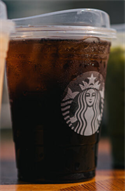 After a successful trial in some markets across the US and Canada in 2019, Starbucks is introducing strawless lids to company-owned and licensed stores in the countries. Starbucks designed, developed, and manufactured the strawless lids in-house. They will become the norm for some of the company’s beverage offerings, including all iced coffee, espresso, tea, and Starbucks Refreshers. Part of the company’s efforts to remove 1 billion plastic straws from its global operations every year, the lid’s design is based on those used for Starbucks hot drinks. Compared with the flat lid and straws previously used for iced beverages, the strawless lid comes with 9% less plastic. Moreover, it’s made from polypropylene and complies with the Association of Plastic Recyclers’ design requirements for recyclability.[Image Credit: © Starbucks]
After a successful trial in some markets across the US and Canada in 2019, Starbucks is introducing strawless lids to company-owned and licensed stores in the countries. Starbucks designed, developed, and manufactured the strawless lids in-house. They will become the norm for some of the company’s beverage offerings, including all iced coffee, espresso, tea, and Starbucks Refreshers. Part of the company’s efforts to remove 1 billion plastic straws from its global operations every year, the lid’s design is based on those used for Starbucks hot drinks. Compared with the flat lid and straws previously used for iced beverages, the strawless lid comes with 9% less plastic. Moreover, it’s made from polypropylene and complies with the Association of Plastic Recyclers’ design requirements for recyclability.[Image Credit: © Starbucks]
CORPORATE ACTION: Tesco
Tesco Remains Focused On 4R’s Plastic Recycling Goals Despite Pandemic-Caused Delays
Tesco, Partners Prove Viability Of Continuous Recycling Of Soft Plastics Into Food-Grade Packaging
 UK retailer Tesco partnered with Plastic Energy, SABIC, Sealed Air, and Bradburys Cheese to prove that soft plastic can be recycled many times into food-grade plastic packaging. Tesco starts the recycling process by sending the soft plastic collected from customers to Plastic Energy, which then uses pyrolysis to convert the material into oil. SABIC uses the recycled oil to manufacture plastic pellets, which are used by Sealed Air to make food-grade plastic packaging for cheese products manufactured by Tesco supplier, Bradburys. Retailers use soft plastics as packaging for food products, including bread, meat, salads, and cheese. UK retailers used almost 400,000 tonnes of soft plastics each year, according to the 2019 UK Household Plastic Collection Survey, with less than 21,000 tonnes collected and recycled.[Image Credit: © Tesco plc/Plastic Energy]
UK retailer Tesco partnered with Plastic Energy, SABIC, Sealed Air, and Bradburys Cheese to prove that soft plastic can be recycled many times into food-grade plastic packaging. Tesco starts the recycling process by sending the soft plastic collected from customers to Plastic Energy, which then uses pyrolysis to convert the material into oil. SABIC uses the recycled oil to manufacture plastic pellets, which are used by Sealed Air to make food-grade plastic packaging for cheese products manufactured by Tesco supplier, Bradburys. Retailers use soft plastics as packaging for food products, including bread, meat, salads, and cheese. UK retailers used almost 400,000 tonnes of soft plastics each year, according to the 2019 UK Household Plastic Collection Survey, with less than 21,000 tonnes collected and recycled.[Image Credit: © Tesco plc/Plastic Energy]
CORPORATE ACTION: Unilever
Persil Relaunches Liquid Detergent With Environment-Friendly Formulation, Recyclable Packaging
 Unilever UK & Ireland’s Persil brand is relaunching its liquid detergent as part of the company’s Clean Future sustainability initiative. As part of the relaunch, the product comes in a new bottle that no longer includes a measuring or dosing ball and is made with 50% recycled plastic and is 100% recyclable. These measures will cut more than 1,000 tonnes of virgin plastic every year. Also, the liquid detergent’s new formulation includes plant-based stain removers and ingredients that are biodegradable and come from renewable or recycled sources. By concentrating the formula by 23%, Persil can use smaller bottles, which translate into 19% fewer trucks to transport the product.[Image Credit: © Unilever plc]
Unilever UK & Ireland’s Persil brand is relaunching its liquid detergent as part of the company’s Clean Future sustainability initiative. As part of the relaunch, the product comes in a new bottle that no longer includes a measuring or dosing ball and is made with 50% recycled plastic and is 100% recyclable. These measures will cut more than 1,000 tonnes of virgin plastic every year. Also, the liquid detergent’s new formulation includes plant-based stain removers and ingredients that are biodegradable and come from renewable or recycled sources. By concentrating the formula by 23%, Persil can use smaller bottles, which translate into 19% fewer trucks to transport the product.[Image Credit: © Unilever plc]
Experts Rank Unilever Top Corporation In Sustainability Leadership Finds GlobeScan/Sustainability Survey
 For the tenth year in a row, Unilever was ranked the world’s leader in corporate sustainability, according to the 2020 GlobeScan/SustainAbility Leaders Survey. Based on interviews with more than 700 experts in more than 70 countries, Unilever was mentioned unprompted by 42% of respondents, up 5 points on 2019. Unilever became the survey’s top corporation in 2011, a few months after the company launched its Unilever Sustainability Plan that for years has guided much of the company’s sustainability effort. Unilever continues to advance its goals and in June said it would be net zero emissions from all its products by 2039 and have a deforestation-free supply chain by 2023.[Image Credit: © Unilever plc]
For the tenth year in a row, Unilever was ranked the world’s leader in corporate sustainability, according to the 2020 GlobeScan/SustainAbility Leaders Survey. Based on interviews with more than 700 experts in more than 70 countries, Unilever was mentioned unprompted by 42% of respondents, up 5 points on 2019. Unilever became the survey’s top corporation in 2011, a few months after the company launched its Unilever Sustainability Plan that for years has guided much of the company’s sustainability effort. Unilever continues to advance its goals and in June said it would be net zero emissions from all its products by 2039 and have a deforestation-free supply chain by 2023.[Image Credit: © Unilever plc]
Seventh Generation Launches Product Line Without Plastic Packaging
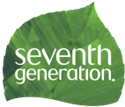 Seventh Generation launched Zero Plastic Homecare, a new line of natural cleaning products without plastic packaging. To do this, the company transformed its cleaning products into non-liquid form. For example, the new hand soap comes in a powder instead of liquid, while the dishwasher detergent comes in tablets. After considering various options, the company chose to use steel packaging, partly because of its higher rate of recyclability, around 70%, in the United States. Seventh Generation said it is partnering with Grove Collaborative, a sustainability-focused online retailer, for the initial stage of the product launch. Seventh Generation recognizes that consumers will need to change use behaviors – sprinkling powder onto a damp cloth to wipe surfaces, for instance – and will watch and wait for feedback to “listen and learn”.[Image Credit: © Seventh Generation Inc]
Seventh Generation launched Zero Plastic Homecare, a new line of natural cleaning products without plastic packaging. To do this, the company transformed its cleaning products into non-liquid form. For example, the new hand soap comes in a powder instead of liquid, while the dishwasher detergent comes in tablets. After considering various options, the company chose to use steel packaging, partly because of its higher rate of recyclability, around 70%, in the United States. Seventh Generation said it is partnering with Grove Collaborative, a sustainability-focused online retailer, for the initial stage of the product launch. Seventh Generation recognizes that consumers will need to change use behaviors – sprinkling powder onto a damp cloth to wipe surfaces, for instance – and will watch and wait for feedback to “listen and learn”.[Image Credit: © Seventh Generation Inc]
CORPORATE ACTION: Other
Iceland Calls For Coordinated Efforts To Rein In Plastic Pollution
Scaling up Iceland’s plastic waste for the whole food retail market and adding non-food retailers and other businesses from all industries using plastic packaging would create an daunting picture of plastic pollution. Iceland calls on all other retailers and companies to also publish their “plastic footprints” and asks the government to require public reporting of such information.[Image Credit: © Iceland]
Keurig Dr Pepper Says Almost 90% Of Company’s Packaging Is Recyclable
[Image Credit: © Keurig Dr Pepper]
The Better Home Launches Natural Home Cleaning Products, Claims Reduced Plastic Waste
Covestro Launches Partially Bio-Based Film Former That Preserves Natural Make-up Formulations
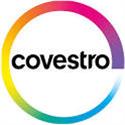 Covestro’s new partially bio-based film former, Baycusan eco E1001, helps preserve natural make-up formulations by preventing adverse effects, such as smearing or discoloration. Part of Covestro’s new product line of polyurethane ingredients that are at least 50% based on renewable raw materials, the Baycusan eco E1001 also retains the properties of synthetic film formers, including water- and abrasion-resistance and transfer-resistance, as with traditional makeup formulations. According to the company, the new product satisfies the requirements for natural origin materials as per the ISO standard 16128.[Image Credit: © Covestro]
Covestro’s new partially bio-based film former, Baycusan eco E1001, helps preserve natural make-up formulations by preventing adverse effects, such as smearing or discoloration. Part of Covestro’s new product line of polyurethane ingredients that are at least 50% based on renewable raw materials, the Baycusan eco E1001 also retains the properties of synthetic film formers, including water- and abrasion-resistance and transfer-resistance, as with traditional makeup formulations. According to the company, the new product satisfies the requirements for natural origin materials as per the ISO standard 16128.[Image Credit: © Covestro]
CAMPAIGNS, COMMITMENTS & NGOs
Greenpeace Debunks “Chemical Recycling”, Gives Warning To FMCGs
In its report, Deception by the Numbers (Sept 9, 2020), Greenpeace looks at the potential and promises of ‘chemical recycling’. These ‘advanced recycling’ methods include existing technologies like pyrolysis and gasification, as well as still-theoretical and experimental methods.
A major hope of chemical recycling is that it can return used plastics into reusable chemical components that can be remade into plastic that is “like new”. Some chemical recycling is mislabelled since it’s geared to turning used plastics into fuel, which is clearly not ‘recycling’.
As part of its research, Greenpeace reviewed 52 leading chemical recycling projects identified by American Chemistry Council that would be able to divert 3 million tons of waste from landfills.
Greenpeace found that many of these ‘recycling’ projects focus on waste-to-fuel projects (which is not recycling). It also found that about one-third of the total projects are unlikely to be viable, and that “none of the plastic-to-plastic projects on this list shows promise of becoming viable”.
Greenpeace concludes that very little of the investment in chemical recycling has a chance of reducing plastic production or pollution.
Warning to FMCGs
Three of the projects on the ACC’s list are associated with major FMCG companies:
It adds that many FMCG companies are investing in chemical recycling solutions that are not plastic-to-plastic yet are positioning them as circular solutions. The campaigner says “FMCGs should not invest in, agree to offtake plastic from, or join development consortiums with “chemical recycling” and petrochemical companies”.
It identifies Coca-Cola, Danone, Mars, Mondeléz, PepsiCo, Procter & Gamble, Nestlé, and Unilever, saying they “need to drop these false solutions entirely and focus their investments and efforts on reducing plastic and urgently accelerating innovation into reuse”.
Since some FMCG companies seem to be counting on chemical recycling to somehow help satisfy their commitments on recycled plastic, Greenpeace is also calling for Ellen MacArthur Foundation to clarify use of “chemical recycling” to meet any New Plastic Economy virgin plastic reduction commitments.
A major hope of chemical recycling is that it can return used plastics into reusable chemical components that can be remade into plastic that is “like new”. Some chemical recycling is mislabelled since it’s geared to turning used plastics into fuel, which is clearly not ‘recycling’.
As part of its research, Greenpeace reviewed 52 leading chemical recycling projects identified by American Chemistry Council that would be able to divert 3 million tons of waste from landfills.
Greenpeace found that many of these ‘recycling’ projects focus on waste-to-fuel projects (which is not recycling). It also found that about one-third of the total projects are unlikely to be viable, and that “none of the plastic-to-plastic projects on this list shows promise of becoming viable”.
Greenpeace concludes that very little of the investment in chemical recycling has a chance of reducing plastic production or pollution.
Warning to FMCGs
Three of the projects on the ACC’s list are associated with major FMCG companies:
- Loop Industries/Indorama: Coca-Cola, Danone, PepsiCo
- PureCycle: Nestlé, L’Oréal, P&G
- BP Infnia: Unilever
It adds that many FMCG companies are investing in chemical recycling solutions that are not plastic-to-plastic yet are positioning them as circular solutions. The campaigner says “FMCGs should not invest in, agree to offtake plastic from, or join development consortiums with “chemical recycling” and petrochemical companies”.
It identifies Coca-Cola, Danone, Mars, Mondeléz, PepsiCo, Procter & Gamble, Nestlé, and Unilever, saying they “need to drop these false solutions entirely and focus their investments and efforts on reducing plastic and urgently accelerating innovation into reuse”.
Since some FMCG companies seem to be counting on chemical recycling to somehow help satisfy their commitments on recycled plastic, Greenpeace is also calling for Ellen MacArthur Foundation to clarify use of “chemical recycling” to meet any New Plastic Economy virgin plastic reduction commitments.
Alliance to End Plastic Waste Partners With Plug and Play Tech Centre To Push Innovation In Plastic Waste Reduction
 The Alliance to End Plastic Waste has collaborated with Silicon Valley-based Plug and Play Tech Centre to launch End Plastic Waste Innovation Platform, an online program to promote innovation in reduction of plastic waste. Aimed at applying innovation to reduce plastic waste, make recycling and recovering plastics easier, and create value from previously used plastics, the online platform connects large companies, such as Dow, with innovation-pushing startups in Silicon Valley, Paris, and Singapore. With Dow, a founding member of the Alliance, providing its support and expertise, the platform seeks to help the startups with access to education, mentorship, and financing. Since its launch in January 2019, the Alliance now counts almost 50 companies from the plastics industry and related sectors as members. Together these companies have pledged to invest $1.5 billion in finding solutions to the world’s plastic waste problems and to recover and create value from used plastic.[Image Credit: © Alliance to End Plastic Waste ]
The Alliance to End Plastic Waste has collaborated with Silicon Valley-based Plug and Play Tech Centre to launch End Plastic Waste Innovation Platform, an online program to promote innovation in reduction of plastic waste. Aimed at applying innovation to reduce plastic waste, make recycling and recovering plastics easier, and create value from previously used plastics, the online platform connects large companies, such as Dow, with innovation-pushing startups in Silicon Valley, Paris, and Singapore. With Dow, a founding member of the Alliance, providing its support and expertise, the platform seeks to help the startups with access to education, mentorship, and financing. Since its launch in January 2019, the Alliance now counts almost 50 companies from the plastics industry and related sectors as members. Together these companies have pledged to invest $1.5 billion in finding solutions to the world’s plastic waste problems and to recover and create value from used plastic.[Image Credit: © Alliance to End Plastic Waste ]
Recycling Partnership And World Wildlife Fund Launch U.S. Plastics Pact To Promote Circular Economy
 The Recycling Partnership collaborated with World Wildlife Fund to launch the U.S. Plastics Pact, a coalition aimed at unifying different public and private organizations, agencies, and corporations involved and operating in the plastics industry and related sectors to come up with new and better ways to design, use, and reuse plastics. Organized as part of the Ellen MacArthur Foundation’s global Plastics Pact network, the U.S. Plastics Pact aims to create a circular economy for plastic in the US. The initiative has over 60 ‘activator’ organizations that have agreed four targets by 2025: come up with a list of problematic or unnecessary packaging by 2021 and eliminate them by 2025; all plastic packaging to be 100% reusable, recyclable, or compostable; effectively recycle or compost 50% of plastic packaging; and 30% of content in plastic packaging to be recycled content or responsibly sourced bio-based content.[Image Credit: © U.S. Plastics Pact]
The Recycling Partnership collaborated with World Wildlife Fund to launch the U.S. Plastics Pact, a coalition aimed at unifying different public and private organizations, agencies, and corporations involved and operating in the plastics industry and related sectors to come up with new and better ways to design, use, and reuse plastics. Organized as part of the Ellen MacArthur Foundation’s global Plastics Pact network, the U.S. Plastics Pact aims to create a circular economy for plastic in the US. The initiative has over 60 ‘activator’ organizations that have agreed four targets by 2025: come up with a list of problematic or unnecessary packaging by 2021 and eliminate them by 2025; all plastic packaging to be 100% reusable, recyclable, or compostable; effectively recycle or compost 50% of plastic packaging; and 30% of content in plastic packaging to be recycled content or responsibly sourced bio-based content.[Image Credit: © U.S. Plastics Pact]
CONSUMER & PUBLIC OPINION
American Consumers Motivated To Live More Sustainably
A survey by Brands for Good and The Harris Poll captured American consumer attitudes around sustainable living.
It surveyed thousands of American consumers to measure their intentions towards adopting sustainable lifestyles. Overall it found that over 95% of Americans said they try to live sustainable lifestyles at least some of the time.
The analysis looked at nine “impactful sustainable behaviors”, two of which relate to plastics. The survey found that Think Durable (which relates to using reusable containers) and Go Circular (recycling and guarding resources) are among the actions with highest intentionality.
It surveyed thousands of American consumers to measure their intentions towards adopting sustainable lifestyles. Overall it found that over 95% of Americans said they try to live sustainable lifestyles at least some of the time.
The analysis looked at nine “impactful sustainable behaviors”, two of which relate to plastics. The survey found that Think Durable (which relates to using reusable containers) and Go Circular (recycling and guarding resources) are among the actions with highest intentionality.
MARKET NEWS
Algramo Expands Refill Vending Machine Business To NYC
INNOVATION & TECHNOLOGY
Loop Industries, SUEZ Collaborate To Build First Infinite Loop Recycling Center In Europe
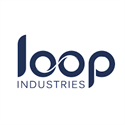 Loop Industries and SUEZ plan to build the first Infinite Loop recycling facility in Europe. Combining SUEZ’s expertise in resource management with Loop’s waste plastic recycling technology, the recycling facility will demonstrate that plastic waste can be recycled into “virgin quality, food grade”, and “infinitely recyclable plastic.” By using Loop’s technology, the facility can claim savings of 180,000 tons of CO2 every year, compared with production of virgin PET using a conventional petrochemical process. Europe consumes about 5.5 million tons of PET plastic each year, with less than 7% recycled. Loop and SUEZ’s proposed recycling facility will provide a final solution to waste plastics that are not recycled at present, as well as increase recycling rates for its host country, which is still to be determined.[Image Credit: © https://www.loopindustries.com/en/]
Loop Industries and SUEZ plan to build the first Infinite Loop recycling facility in Europe. Combining SUEZ’s expertise in resource management with Loop’s waste plastic recycling technology, the recycling facility will demonstrate that plastic waste can be recycled into “virgin quality, food grade”, and “infinitely recyclable plastic.” By using Loop’s technology, the facility can claim savings of 180,000 tons of CO2 every year, compared with production of virgin PET using a conventional petrochemical process. Europe consumes about 5.5 million tons of PET plastic each year, with less than 7% recycled. Loop and SUEZ’s proposed recycling facility will provide a final solution to waste plastics that are not recycled at present, as well as increase recycling rates for its host country, which is still to be determined.[Image Credit: © https://www.loopindustries.com/en/]
Henkel Tests Digital Watermark Technology With Vernel Line Of Fabric Softeners
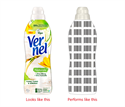 Henkel is participating in the HolyGrail 2.0 digital watermark technology initiative launched by the European Brands Association (AIM). The objective is to determine if a “pioneering digital technology” can improve sorting and recycling rates for packaging in the EU, and it will also evaluate the technology’s ability to help bring about a truly circular economy. Henkel’s participation will involve the application of the digital watermark technology to a new product range under its Vernel brand of fabric softeners. Invisible to the human eye, digital watermarks work like a barcode designed to enhance sorting of packaging waste and improve recycling rates. HolyGrail 2.0 will include industry-level testing of the technology to confirm its supposed advantages and benefits for recycling and sustainability.[Image Credit: © Henkel]
Henkel is participating in the HolyGrail 2.0 digital watermark technology initiative launched by the European Brands Association (AIM). The objective is to determine if a “pioneering digital technology” can improve sorting and recycling rates for packaging in the EU, and it will also evaluate the technology’s ability to help bring about a truly circular economy. Henkel’s participation will involve the application of the digital watermark technology to a new product range under its Vernel brand of fabric softeners. Invisible to the human eye, digital watermarks work like a barcode designed to enhance sorting of packaging waste and improve recycling rates. HolyGrail 2.0 will include industry-level testing of the technology to confirm its supposed advantages and benefits for recycling and sustainability.[Image Credit: © Henkel]
Giunko’s Junker Smartphone App Helps Consumers Sort Packaging Wastes In Italy
EMERGING IDEAS, THEMES & TRENDS
Smood Promotes Zero-Waste Living In Singapore By Marketing Natural Deodorants Without Packaging
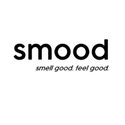 Smood, a natural deodorant brand in Singapore, is selling natural deodorants shaped like bars of soap. The products are made with natural ingredients, including beeswax, coconut oil, and cassava starch. Unlike other natural deodorant brands, the founder chose to use a simple paper wrapping rather than environment-friendly but more sophisticated packaging, such as paper tubes and spray bottles. The brand launched in October 2019.[Image Credit: © Smood.sg.]
Smood, a natural deodorant brand in Singapore, is selling natural deodorants shaped like bars of soap. The products are made with natural ingredients, including beeswax, coconut oil, and cassava starch. Unlike other natural deodorant brands, the founder chose to use a simple paper wrapping rather than environment-friendly but more sophisticated packaging, such as paper tubes and spray bottles. The brand launched in October 2019.[Image Credit: © Smood.sg.]
COVID-19 Slows But Doesn’t Stop Sustainability Thrust In Plastic Packaging
Sustainability, including the circular economy, has remained a major driving factor for the consumer packaging sector in 2020. While the COVID-19 pandemic, particularly during its severe initial phase, shifted consumer focus to packaging that ensures product safety and hygiene, the market in general has stayed focused on plastic as a pollutant.
GDP has declined as a result of the pandemic but demand for retail grocery packaging remains resilient, showing positive growth. COVID-19-driven stockpiling and related public health lockdowns are pushing this trend, encouraging consumers to purchase retail packaged groceries for at-home consumption. With COVID-19 also creating demand for touch-free and non-contact shopping, retailers are using protective packaging material to help reduce human contact in food and beverage purchasing, as well as speed up the in-store shopping process and reduce the risk of contracting the virus.
Aside from its public health impact, COVID-19 has also caused delays to some plastic-related sustainability campaigns and initiatives, including those in the UK and Italy. Nevertheless, major brand manufacturers, such as Nestlé SA, Groupe Danone, and Coca-Cola European Partners, claim continued commitment to sustainability, including packaging waste and recovery. More than 60 companies and organizations joined the US Plastics Pact, part of the Ellen MacArthur Foundation’s Plastic Pact, perhaps indicating a greater interest in recycling in a country with lower recycling rates than Europe.
GDP has declined as a result of the pandemic but demand for retail grocery packaging remains resilient, showing positive growth. COVID-19-driven stockpiling and related public health lockdowns are pushing this trend, encouraging consumers to purchase retail packaged groceries for at-home consumption. With COVID-19 also creating demand for touch-free and non-contact shopping, retailers are using protective packaging material to help reduce human contact in food and beverage purchasing, as well as speed up the in-store shopping process and reduce the risk of contracting the virus.
Aside from its public health impact, COVID-19 has also caused delays to some plastic-related sustainability campaigns and initiatives, including those in the UK and Italy. Nevertheless, major brand manufacturers, such as Nestlé SA, Groupe Danone, and Coca-Cola European Partners, claim continued commitment to sustainability, including packaging waste and recovery. More than 60 companies and organizations joined the US Plastics Pact, part of the Ellen MacArthur Foundation’s Plastic Pact, perhaps indicating a greater interest in recycling in a country with lower recycling rates than Europe.
The Financial Services Industry Is Waking Up To Opportunities Offered By The Circular Economy
The Ellen MacArthur Foundation has outlined how financial services and investment firms have been expanding their business operations, product offerings and services focused on the circular economy. Seeing huge earnings opportunities, banks and investment companies are increasing their debt and equity instruments related to the circular economy. For example, at least 10 corporate bonds have been issued in the past 18 months with assistance from leading financial companies, including Barclays, HSBC, ING, and Morgan Stanley. The same thing is happening in other sectors of the financial industry, such as bank lending, project financing, and insurance. Among these activities are Morgan Stanley’s launch of Plastic Waste Resolution and the European Investment Bank’s collaboration with five of Europe’s biggest national promotional banks and institutions to launch a loan and investment program backed by a €10 billion fund. These developments offer insights on how financial institutions intend to create value from the circular economy.
Pandemic Weakens Americans’ Concern, Resolve For Environmental Protection, Sustainability
The pandemic is driving higher volumes of single-use plastics and plastic and packaging waste in general. But, a survey from the Consumer Brands Association, conducted by Ipsos, found that of 1,016 Americans surveyed, 69% were more worried about public health dangers posed by the pandemic than its environmental impact. Moreover, the percentage of Americans worried about the environment dropped 8 points from 2019 to 82% in 2020. Only 11% of respondents believe recycling systems in the country are doing all they can to recycle materials, perhaps because of a lack of standardization across the almost 10,000 recycling programs in the US. 62% believe that improving the recycling system is the best way to manage single-use plastic pollution, while only 17% prefer a ban on single-use plastics.
Illegal Plastic Pollution Trade Rises At Alarming Rates Worldwide Since 2018, INTERPOL Says
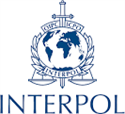 Interpol says that since 2018, there has been a disturbing growth in illegal plastic pollution trade worldwide. Its report, “INTERPOL’s strategical analysis on emerging criminal trends in the global plastic waste market since January 2018,” highlights the increase during the past two years in illegal waste shipments. It says waste shipments are usually rerouted to South-East Asia, with various countries used as transit points to cover up their origin. The report also points to a rise in illegal waste fires and landfills in Asia and Europe as well as growth in the use of fake documents and falsified waste registrations. Based on open sources and police intelligence from 40 countries, the report includes case studies from each of the countries to highlight the scope and intricacy of the problem.[Image Credit: © INTERPOL]
Interpol says that since 2018, there has been a disturbing growth in illegal plastic pollution trade worldwide. Its report, “INTERPOL’s strategical analysis on emerging criminal trends in the global plastic waste market since January 2018,” highlights the increase during the past two years in illegal waste shipments. It says waste shipments are usually rerouted to South-East Asia, with various countries used as transit points to cover up their origin. The report also points to a rise in illegal waste fires and landfills in Asia and Europe as well as growth in the use of fake documents and falsified waste registrations. Based on open sources and police intelligence from 40 countries, the report includes case studies from each of the countries to highlight the scope and intricacy of the problem.[Image Credit: © INTERPOL]
Era Zero Waste Offers Online Store For Personal Care And Cleaning Products With Refillable Packaging
 Era Zero Waste is expanding its ecommerce system for selling personal care and cleaning products that come without disposable packaging. Based on the German Pfandsystem and the traditional milkman model of distribution, the company says its products are refilled at the customer’s home by a bike refill station or “carbon neutral” mail. According to the company, it has started with six ready-to-use personal care products sustainably manufactured in Denmark and packaged in bottles made of plastic recovered from the ocean.[Image Credit: © Era Zero Waste]
Era Zero Waste is expanding its ecommerce system for selling personal care and cleaning products that come without disposable packaging. Based on the German Pfandsystem and the traditional milkman model of distribution, the company says its products are refilled at the customer’s home by a bike refill station or “carbon neutral” mail. According to the company, it has started with six ready-to-use personal care products sustainably manufactured in Denmark and packaged in bottles made of plastic recovered from the ocean.[Image Credit: © Era Zero Waste]
When It Comes To Sustainability, Companies Should Not Cater Blindly To Consumers
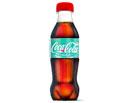 A former sustainability expert at Coca-Cola said recently that while companies should try to accommodate customer preferences, that accommodation should not mean compromising sustainability goals. This position contradicts what Coca-Cola’s chief sustainability officer Beatriz Perez told a recent business forum: Coca-Cola “won’t be in business if we don’t accommodate customers” who, for example, might stop drinking Coke if it no longer came in single-use plastic bottles. But, according to Dan Vermeer of Duke University, influential brands such as Coca-Cola are ideally positioned to drive shifts in consumer preferences, pushing even plastic-seeking customers to more sustainable choices. “Brands can lead customers to different choices … [by] limiting available options to more sustainable choices to shift the mainstream away from environmentally or socially damaging products.”[Image Credit: © The Coca-Cola Company]
A former sustainability expert at Coca-Cola said recently that while companies should try to accommodate customer preferences, that accommodation should not mean compromising sustainability goals. This position contradicts what Coca-Cola’s chief sustainability officer Beatriz Perez told a recent business forum: Coca-Cola “won’t be in business if we don’t accommodate customers” who, for example, might stop drinking Coke if it no longer came in single-use plastic bottles. But, according to Dan Vermeer of Duke University, influential brands such as Coca-Cola are ideally positioned to drive shifts in consumer preferences, pushing even plastic-seeking customers to more sustainable choices. “Brands can lead customers to different choices … [by] limiting available options to more sustainable choices to shift the mainstream away from environmentally or socially damaging products.”[Image Credit: © The Coca-Cola Company]
RESEARCH
Food Industry Must Adopt No-Nonsense Testing To Ensure Bio-Based Packaging Is Safe
Copyright 2026 Business360, Inc.

